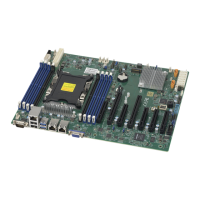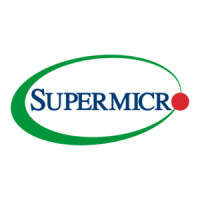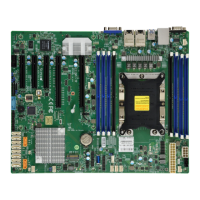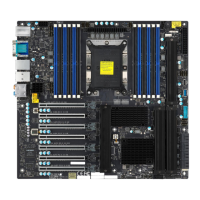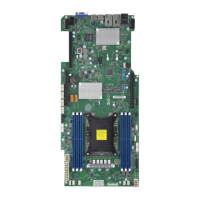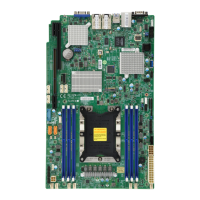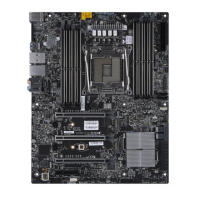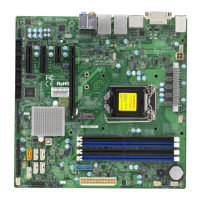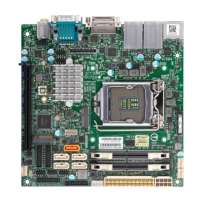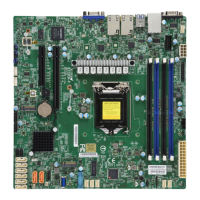17
Chapter 1: Introduction
Note: The table above is continued on the next page.
Motherboard Features
I/O Devices
• Serial (COM) Port
• One (1) serial port on the rear I/O panel (COM1)
• One (1) front accessible serial port header (COM2)
• SATA 3.0 (6Gb/s)
Twelve (12) SATA 3.0 ports:
• Eight (8) SATA 3.0 ports via AHCI controller with RAID 0, 1, 5, 10 (I-SATA0~7)
• Four (4) SATA 3.0 ports via sSATA controller with RAID 0, 1, 5, 10 (S-SATA0~3)
• RAID array and volume(s) cannot span across the two (AHCI and sSATA)
controllers
• Video (VGA) Port • One (1) VGA connection on the rear I/O panel
Peripheral Devices
• Two (2) USB 2.0 ports on the rear I/O panel (USB0/1)
• Two (2) USB 3.0 ports on the rear I/O panel (USB6/7)
• Two (2) front accessible USB 2.0 headers with two (2) USB connections (USB2/3, USB4/5)
• One (1) front accessible USB 3.0 header with two (2) USB connections (USB8/9)
• One (1) USB 3.0 Type-A header (USB10)
BIOS
• 256Mb SPI AMI BIOS
®
SPI Flash UEFI BIOS
• ACPI 6.0, SMBIOS 3.0 or later, BIOS rescue hot-key, Plug-and-Play (PnP), SPI dual/quad speed support, riser card auto
detection support, real time clock (RTC) wakeup
Power Management
• ACPI Power Mangement
• Power button override mechanism
• Power-on mode for AC power recovery
• Wake-on-LAN
• Power supply monitoring
System Health Monitoring
• Onboard voltage monitoring for +3.3V, +5V, +12V +3.3V standby, +5V standby, VBAT, memory, PCH temperature, system
temperature, memory temperature
• 5+1 CPU switch phase voltage regulator
• CPU thermal trip support
• Platform Environment Control Interface (PECI)
Fan Control
• Fan status monitoring via IPMI connections
• Single cooling zone
• Low-noise fan speed control
• Eight (8) 4-pin fan headers
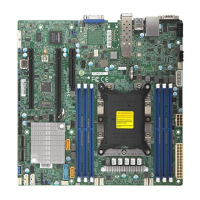
